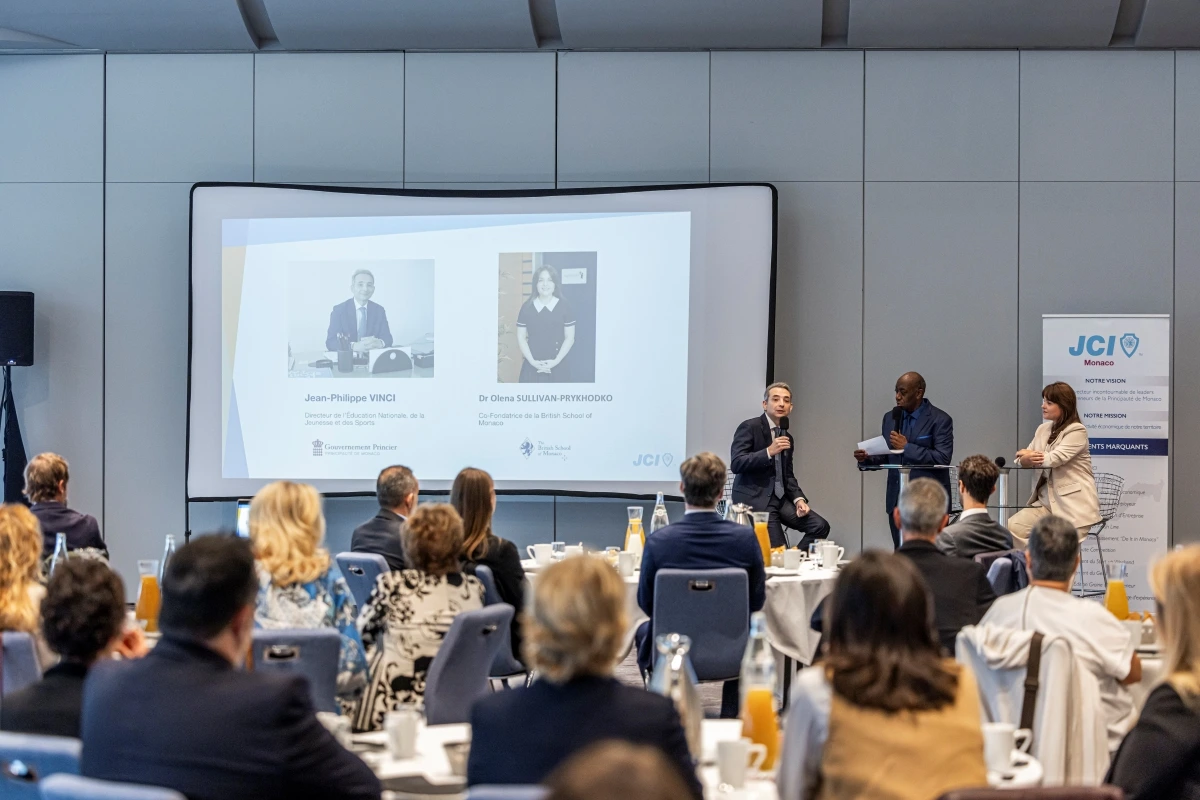The Principality’s education system was put under the microscope at a recent gathering of the Junior Chamber International Monaco (JCI Monaco), which saw guest speakers and participants discuss the challenges facing the sector, from the digital transformation to mobile phone policies and the rise of AI tools in the classroom, as well as the strengths of the Monegasque approach to learning and finding the right balance for children in the school environment.
JCI Monaco held its third Breakfast Conference of the year at Le Méridien Beach Plaza on 3rd October. The event brought together many notable figures from the Principality’s education system, including Jean-Philippe Vinci, Director of National Education, Youth, and Sports, and Dr. Olena Sullivan-Prykhodko, the co-founder of the British School of Monaco, who spoke on ‘The Role of Education in the Principality’.
See more: From concept to reality: JCI Monaco seeks to empower aspiring entrepreneurs through targeted events
Those present discussed the challenges and opportunities in Monaco’s education sector, particularly in digital transformation.
With many schools in France completely banning mobile phones and the UK implementing restricted usage, the British School of Monaco has decided to take a different approach through a collaboration with Monaco Telecom. Called the PhoneWall, the initiative provides students with older Nokia phone models that offer only the essential features needed for communication, thus reducing distractions linked to smart phone usage.
Read related: British School of Monaco’s new secondary premises takes innovative approach to phones in schools
“We can’t abolish screens altogether; instead, we must teach students how to use them responsibly and limit their screen time,” said Vinci. “Children naturally spend less time on screens when the real world is more engaging than the virtual one.”
Another key topic was the rise of AI tools like ChatGPT, which students are increasingly using.
Vinci remarked, “We can’t demonise ChatGPT. We need to learn how to work with it wisely rather than against it.”
Both the Director of National Education and Dr. Sullivan-Prykhodko acknowledged the challenge of establishing boundaries regarding students’ use of AI tools, noting the difficulty in monitoring and guiding students to ensure these technologies are used responsibly without becoming a replacement for critical thinking skills.
To address this, the speakers mentioned the possibility of implementing some AI-detecting software and establishing guidelines for students to refer to when using AI tools, as well as developing workshops on the topic.
They also discussed the new educational infrastructure being developed to strengthen Monaco’s position as a learning hub. Last month, the British School of Monaco expanded its offerings by establishing a secondary school and plans to introduce the A-Level programme in the next few years. Similarly, Collège Charles III recently opened a new building just in time for the start of the academic year, and the International School of Monaco also relocated to a new building last month.
Read more: Collège Charles III opens its doors: a new era of education in Monaco
“We’ve had such a positive reception for the new Collège Charles III, and I’m excited to see how this space will be used, filled with students learning together. As I always say, we need to learn together and from one another,” commented Vinci.
JCI Monaco is a non-profit organisation that empowers young entrepreneurs aged 18 to 40. Through events such as these, workshops, and community projects, it focuses on leadership development, social responsibility and entrepreneurship while promoting innovation.
Monaco Life is produced by real multi-media journalists writing original content. See more in our free newsletter, follow our Podcasts on Spotify, and check us out on Threads, Facebook, Instagram, LinkedIn and Tik Tok.
Photo credit: P.Fitte / JCI
